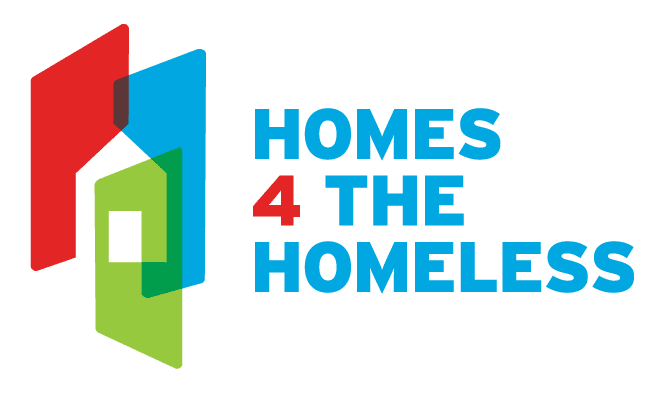New Report Shows California Spent Billions Criminalizing Homelessness While Leaving Tens of Thousands Still on the Streets
California isn’t tough on homelessness. It’s tough on homeless people. A new report highlighted by PBS shows that of the 52,000 unsheltered people recently evicted from encampments in California, only two were housed. This is to the tune of a whopping $20 billion budget.
Norman sleeps on the sidewalk in Harbor City, LA. He is one of more than 50,000 unsheltered homeless people in California. In a candid conversation with Invisible People reporters, he broke down the harrowing life consequences of residing in a homeless encampment, explaining that sweeps have done little to alter his circumstances, other than forcing him to start over on yet another street corner.
“I’ve been ran out of my shack before by a gang of rats,” he said. “But here I am back again because it’s the only place I’ve got.”
California has a Homeless Problem Because It Has a Housing Problem
Studies continue to reveal that the leading cause of homelessness is a lack of affordable housing. Yet people in positions of power defiantly respond to this dilemma by adding hundreds of new pieces of anti-homeless legislation to the books and then enforcing those laws in the cruelest way possible.
The rhetoric behind the criminalization of homelessness is exhausting, predictable, and expensive, and it’s coming right out of the taxpayers’ pockets. It’s easy to see that states with the highest housing prices exhibit much higher rates of homelessness, California being the poster child of this, not the exception. However, city leaders stick to their script, which includes the following:
- Resorting to dehumanization tactics such as comparing homeless people to animals, insects, or inanimate objects
- Refusing to acknowledge the overwhelming role that the lack of affordable housing plays in the lives of people living on the streets
- Making homelessness look like a personal choice rather than a societal failure
- Heavily implying that most homeless people are “service-resistant” and that they are simply choosing to live on the streets
One recent example of such rhetoric can be found in the PBS interview released with this story. Garden Grove, California, Council Member George S. Brietigam III defended Governor Newsom’s intentions to aggressively enforce anti-homeless legislation by casually comparing unsheltered homeless people to horses who need to be fed carrots in order to receive the treatment that is best for them.
“We have got all the carrots,” said Brietigam. “And we needed that stick to progress with the harder-to-get homeless individuals.”
In his speech, there is no mention of the fact that California boasts the highest housing costs in the country, and that the vast majority of renters living here are cost-burdened, making them one paycheck away from homelessness. Instead, Brietigam leans heavily into the narrative that living on the streets is a choice and continues to speak of homeless people as if they are victims of their own bad decisions.
“We’re getting the easy ones now, the ones who are willing to cooperate,” he added. “You’re going to have less success when you’re dealing with the hard people. And so, how do you motivate people to take advantage of the programs? How do you motivate them if there’s no consequence for their negative behavior?”
None of these narratives is true. Homeless people are not resisting services. They are averse to being thrust into temporary housing facilities only to be tossed back out onto the street in a matter of weeks without their belongings. And this much is evidenced when people in positions of power choose the right thing over the easy thing.
For example, London Mayor Sadiq Khan has successfully housed more than 18,000 rough sleepers by investing in housing, services, and homeless prevention programs. This is an 18,000 times success rate when compared to California’s criminalization strategy.
For a fraction of what California is spending to harass and handcuff homeless people, Mayor Khan has drastically reduced rough sleeping, effectively removing tens of thousands of homeless people from city streets rather than moving them from one corner of the city to another.
Experts Urge Advocates to Speak Out Against Costly, Cruel, and Ineffective Encampment Crackdowns
In a one-on-one exchange with Invisible People reporters, the founder of the National Homelessness Law Center, Maria Foscarinis, elaborated on the failed success rates.
“California’s latest crackdown on unhoused people is a giant step backward in the fight to end homelessness,” said Foscarinis. “Governor Newsom has recognized that his state, like the country, is in the midst of an affordable housing crisis and that more affordable housing is essential to ending homelessness.”
“Criminalizing people for living in public when they have nowhere else to go does nothing to end homelessness,” she continued, “in fact, it makes it harder for people to exit it. Criminalizing homelessness policy not only harms people who are simply trying to survive, but it also repeats the false and harmful narrative that blames them for their circumstances. Polls show that the American people want real solutions to homelessness, not cynical and destructive policies that deepen the crisis.”
Tell Your Legislators Spending $20 Billion to House 2 People Is Unacceptable
The only way these figures make sense is if the point of these crackdowns is cruelty. Anyone who wants to solve the homeless crisis knows they can do so with housing. Remind your local legislators that housing must be a human right.
